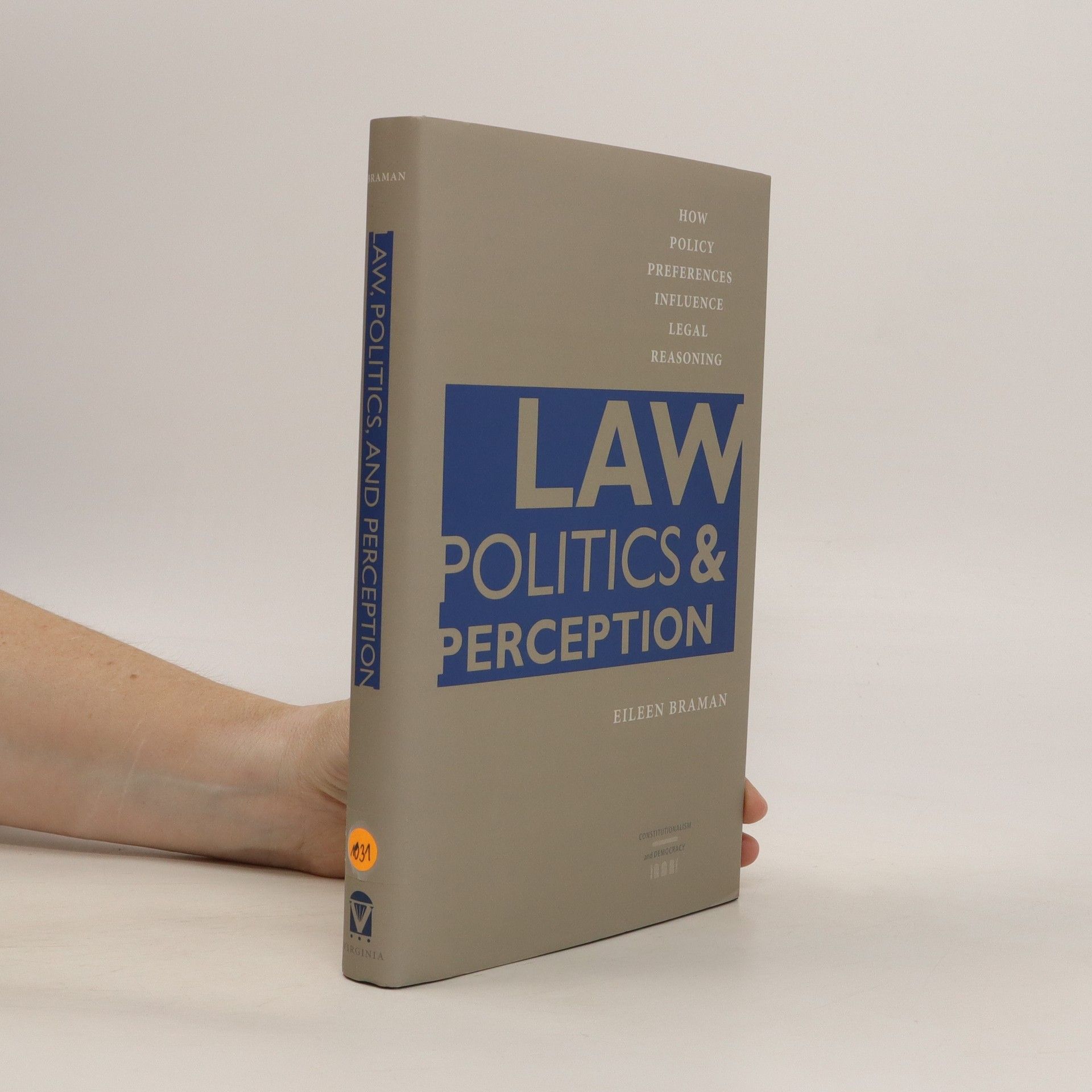Paramètres
- 231pages
- 9 heures de lecture
En savoir plus sur le livre
Are judges' decisions more likely to be based on personal inclinations or legal authority? The answer, Eileen Braman argues, is both. Law, Politics, and Perception brings cognitive psychology to bear on the question of the relative importance of norms of legal reasoning versus decision markers' policy preferences in legal decision-making. While Braman acknowledges that decision makers' attitudes―or, more precisely, their preference for policy outcomes―can play a significant role in judicial decisions, she also believes that decision-makers' belief that they must abide by accepted rules of legal analysis significantly limits the role of preferences in their judgements. To reconcile these competing factors, Braman posits that judges engage in "motivated reasoning," a biased process in which decision-makers are unconsciously predisposed to find legal authority that is consistent with their own preferences more convincing than those that go against them. But Braman also provides evidence that the scope of motivated reasoning is limited. Objective case facts and accepted norms of legal reasoning can often inhibit decision makers' ability to reach conclusions consistent with their preferences.
Achat du livre
Law, politics, & perception how policy preferences influence legal reasoning, Eileen Braman
- Langue
- Année de publication
- 2009
- product-detail.submit-box.info.binding
- (rigide)
Modes de paiement
Personne n'a encore évalué .



